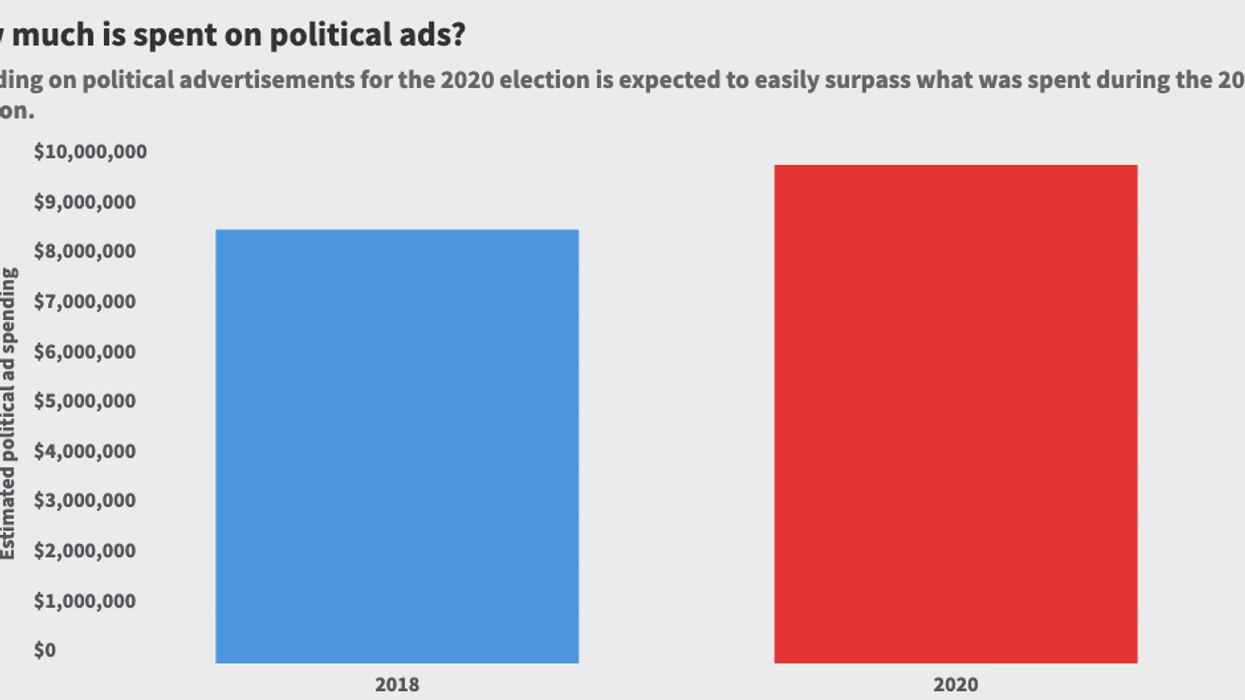Spending on broadcast and online advertising for next year's election is anticipated to crush the total for last year's midterm.
Group M, which describes itself as the world's biggest ad-buying business, predicts $10 billion will be spent on political ads for the 2020 election – a 15 percent boost above the 2018 total. Every dollar spent on television and social media, of course, is an additional dollar that candidates and political groups must successfully solicit from their allies. This ever-intensifying chase for cash is one of the many aspects of the campaign finance system that has "good government" advocates despondent.
In a report released Tuesday, Group M detailed how advertising money was spent in the last campaign with growth estimates for the next one.
It found that political advertising during an election year has a significant impact on overall ad growth. In 2018, the advertising industry grew 9.5 percent, and almost half that growth was due to political ads, Group M calculated. For the midterm election, $8.7 billion was spent on political ads. "It seems unlikely that political advertising won't be bigger in 2020 vs. 2018," the report concludes.
The growth in ad buying between presidential cycles is also growing at a faster and faster clip. Political spending grew by $1.1 billion between Barack Obama's first election and his second, but by $2 billion between Obama's re-election and Donald Trump's victory.
Political donations from women are also expected to break records in 2020, piggybacking off the momentum built up in 2018, Roll Call reported. Many women were motivated to give money in the last election, thus bridging the historical gender gap in political fundraising.
Women are likely to give even more money to campaigns in the 2020 cycle, especially since issues such as abortion rights are sure to be prominent.
According to the Center for Responsive Politics, the number of women who gave more than $200 to congressional campaigns in the first three months of this year was 25 percent more than in the first quarter of the previous cycle.




















Marco Rubio is the only adult left in the room